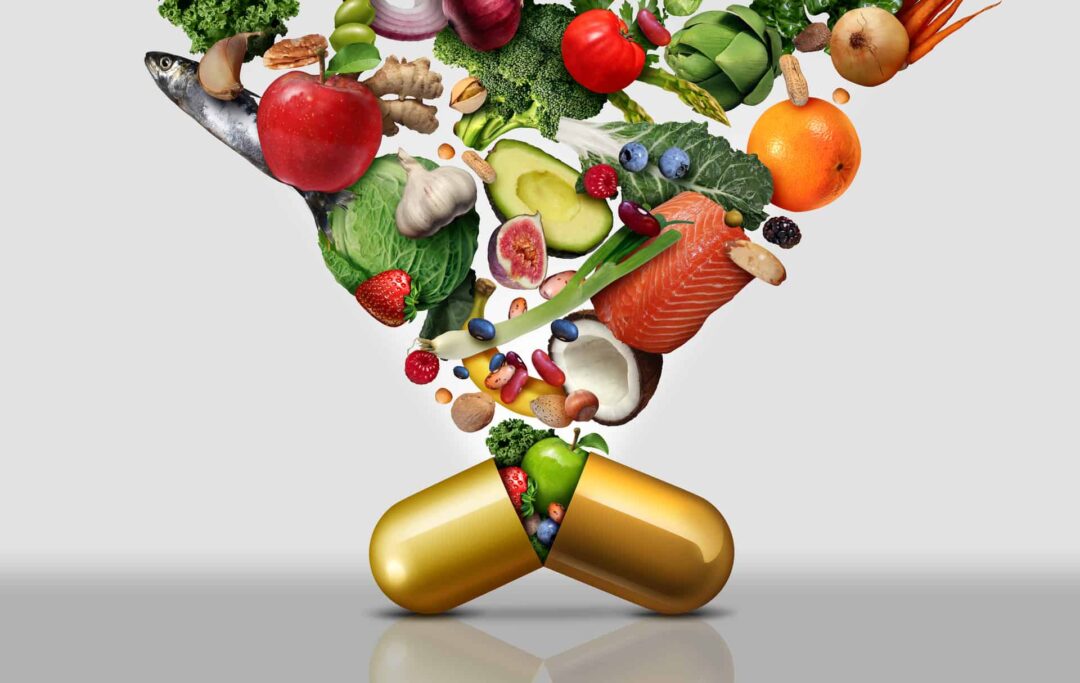It’s New York City in the middle of the COVID pandemic. You’re a 48-year old woman with no serious health issues, and you wake up suddenly finding it hard to breathe. You have a fever and chills. And you lost your sense of taste and smell.
Classic, textbook COVID-19, right?
Right. Which is exactly why your family rushes you to the hospital—NYU Langone Hospital-Brooklyn in Sunset Park, to be exact.
This isn’t an imagined scenario. It happened to Josephine Bruzzese on March 22, 2020.
As her 23-year-old son James later told theNew York Post, “She was so short of breath she couldn’t speak” (1).
Thinking Outside The COVID Box
As it happens, James was a medical student, so he called up a Lyme disease specialist with whom he had interned, Dr. Richard Horowitz.
Dr. Horowitz told James that he, Horowitz, found a treatment that successfully reduced inflammation in his patients with Lyme Disease. “Maybe”, Dr. Horowitz suggested, “it might be worth a try for your mother.”
That treatment wasglutathione, also known as the body’s master antioxidant. (More on glutathione in a minute.)
As Dr. Horowitz put it, “When you get a viral infection with a huge amount of inflammation, you don’t have enough glutathione to be able to protect your very sensitive lung tissue.”
James went back and gave a 2,000 mg dose of glutathione to his mother. “Within an hour my breathing got better,” Josephine Bruzzese told reporters. She sat up, got out of bed, and took a shower. She continued taking glutathione for five days and had no relapse (1).
Before I tell you why glutathione is so important that it’s called the body’s “master antioxidant,” let’s first talk about what antioxidants are in the first place and why we all need them.
What do antioxidants do, anyway?
In the simplest sense,anti-oxidants fight oxidation. And what, exactly, is “oxidation”?
Glad you asked.
Imagine leaving a bowl of apple slices outside on a picnic table in the sun for a few hours. What happens? They start to turn brown, right?
That’s oxidative damage,aka oxidation. It’s caused by oxygen molecules that split into rogue atoms known asfree radicals. Free radicals are one of the reasons food spoils when left exposed to air and light. Free radicals are made in your body all the time, and they are constantly attacking your cells, your mitochondria (the energy factories in the cell), even your DNA.
That’s whereanti-oxidants come in. Antioxidants—like vitamin C—help neutralize the damage of free radicals. That’s why squeezing the juice of a vitamin-C-rich lemon on those apple slices helps protect them from browning.
Without antioxidants to mount an attack on the free radicals that can destroy our tissues and cells, we’d pretty much be toast.
Glorious Glutathione
Antioxidants don’t just come from the diet, though the diet is a pretty powerful source of them, as are supplements. Antioxidants are also manufactured in the body. And the most powerful antioxidant the body makes is something calledglutathione.
For openers, glutathione protects your mitochondria (2). The mitochondria are the little structures within the cell that actually create energy. Nothing good happens if the mitochondria aren’t able to effectively produce energy, which is exactly what will happen if they are overwhelmed by free radicals.
Glutathione actually binds up free radicals, helping to combat a lot of the damage that free radicals cause.
As I pointed out in the book I wrote with cardiologist Steven Sinatra—The Great Cholesterol Myth—cholesterol is not a problem until it becomes damaged, by the twin towers of cellular destruction: inflammation andoxidation.Because glutathione is such a powerful antioxidant, it may help to prevent some of that damage.
Research tends to support the theory that glutathione may be helpful for heart disease. A German study of patients who underwent coronary angiography found that glutathione peroxidase 1 activity was among the strongest predictors of the risk of cardiovascular events. Not surprisingly, those in the study who had experienced heart attacks had significantlylessof this glutathione-based enzyme than those who were heart-attack free (3).
And since heart disease is almost always caused, promoted by, made worse by, or accompanied by inflammation, it’s worth noting how powerful an anti-inflammatory glutathione is. Independent of its antioxidant firepower, it also lowers inflammation(4).
Glutathione and Your Immune System
And speaking of immunity…
Glutathione actually modulates inflammation by influencing the white blood cells, important warriors in your immune cell army (5). One research study published in 2017 found that glutathione “fine-tunes the innate immune response toward antiviral pathways” (5).
Did you get that? In English, it means glutathione helps your immune system go ballistic on viruses.
A review article entitledGlutathione and Infection showed clearly that glutathione impacts the activity of a whole variety of immune system cells, thereby helping to protect against viral and parasitic infections (6). This is one reason physicians like Dr. Richard Horowitz use it for Lyme disease.
How Do I Get More Glutathione?
In some of the above-mentioned studies, subjects were given oral glutathione supplements, but I seriously doubt they were the typical glutathione supplements you might find in a vitamin store.
That’s because glutathione supplements, at least traditionally, have been extremely difficult to absorb. And while there are oral supplements that the manufacturers claim are effective, they are few and far between.
Up till now the best way we had of increasing glutathione was a hack. You had to trick the body into making more of its own. One of the reasons I always recommended whey protein over any other kind is the fact that whey protein actually boosts glutathione in the body (7).
Another way to boost glutathione is to take NAC (N-acetyl cysteine), a glutathione precursor (8). But some scientists claim that these precursors increase glutathione levels in theblood, but not in thecells where it’s most needed.
GGC To The Rescue
There is, however, a glutathione precursor that virtually guarantees glutathione will wind up in the cells. It’s got the unwieldy name ofgamma-glutamylcysteine, thankfully known by its nickname, GGC. Once the body has GGC, all it has to do is add a second molecule of glycine and voila- you’ve got glutathione.
Recently, a proprietary form of GGC—calledglyteine—was developed, and shown in human trials to actually increase cellular glutathione. (You can read about glyteine and viral infections on the information-only website,www.glyteine.com.) Look for glyteine to be available in consumer products soon, and pay attention when it does!
However you get your glutathione—intravenously, or with hacks like NAC and whey protein, or with gyteine (when it becomes available)—extra glutathione will serve you (andyour immune system) well.
After all, it’s not called the “Master Antioxidant” for nothing.
REFERENCES
- https://nypost.com/2020/05/09/new-york-mom-with-coronavirus-saved-by-medical-student-son/
- https://www.ncbi.nlm.nih.gov/pmc/articles/PMC2821140/
- https://www.nejm.org/doi/full/10.1056/NEJMoa030535#t=article
- https://www.fxmedicine.com.au/blog-post/glutathione-inflammatory-disease
- https://www.ncbi.nlm.nih.gov/pmc/articles/PMC5626850/
- https://www.ncbi.nlm.nih.gov/pubmed/23089304
- https://www.ncbi.nlm.nih.gov/pubmed/29053995
- https://www.integrativepro.com/Resources/Integrative-Blog/2016/Glutathione-levels-and-N-acetyl-L-cysteine-(NAC)










